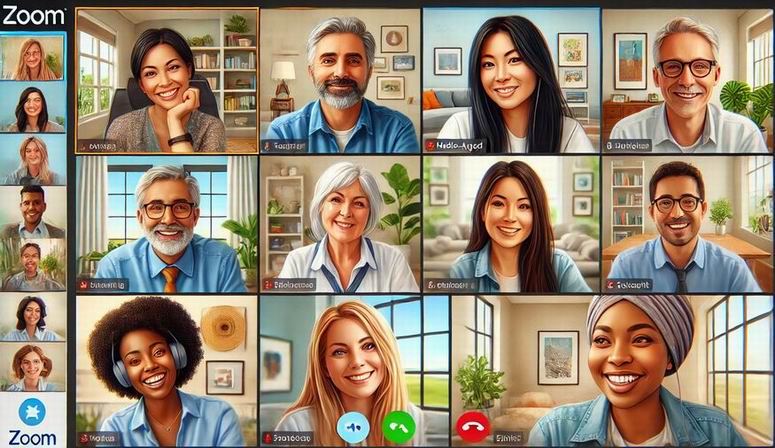“Networking is less about collecting contacts and more about building relationships.” ~ Ivan Misner, founder of Business Networking International
Gone are the days when networking only meant exchanging business cards at offline events. Today, some of the most impactful networking happens online. Whether through LinkedIn, industry forums, or even WhatsApp, the digital world has made it easier than ever to connect. The key? Building relationships that lead to mutual growth and success.
Networking Online
Networking online refers to the process of building and maintaining professional or personal relationships through digital platforms and tools, such as social media, forums, and communication apps, to share information, collaborate, and achieve mutual goals. It emphasizes creating meaningful connections rather than simply accumulating contacts.
Why Online Networking Is Essential for Growth
According to LinkedIn, 80% of B2B leads come from their platform alone. This shows the power of leveraging digital tools to reach new audiences, create partnerships, and generate business opportunities. But networking online is about more than making introductions; it’s about cultivating meaningful connections that last.
The Shift from Quantity to Quality
According to LinkedIn Global Trends Report, 81% of professionals believe that building strong relationships is the key to success in their careers. However, networking isn’t about collecting as many connections as possible; it’s about cultivating meaningful ones. A smaller, engaged network of people who trust and value you often lead to better opportunities, collaborations, and referrals.

Why Quality Matters More Than Quantity
- Trust Drives Opportunities: People in your close network are more likely to refer you to others because they trust you and understand your strengths.
- Engagement Over Exposure: A smaller, engaged audience (like those who frequently comment or share your posts) often leads to higher conversion rates than a large, passive audience.
- Deeper Insights: In a quality-driven network, you’re more likely to have genuine conversations that provide valuable feedback or insights into your industry.
Examples of Quality Over Quantity in Action
- Scenario 1: A professional with 500 LinkedIn connections actively engages with 50 of them regularly, leading to a steady stream of referrals and collaboration opportunities.
- Scenario 2: Another individual with 5,000 connections rarely interacts with their network, resulting in minimal impact or return from their efforts
How to Prioritize Quality in Your Networking
- Audit Your Current Network: Identify the connections that bring the most value, whether through opportunities, insights, or support.
- Engage with Intention: Instead of liking 50 posts, leave thoughtful comments on 5. Show genuine interest in the ideas and work of others.
- Focus on Mutual Benefit: Ask yourself how you can add value to the relationship. People are more likely to invest in a connection when it’s reciprocal.

How to Build Authentic Relationships Online
1
Start with Purpose
Ask yourself:
- Who am I trying to connect with?
- What do I want to learn, share, or achieve through this connection?
Approaching networking with intention ensures you focus your efforts on building meaningful relationships. For example, if your goal is to expand into a new market, seek connections in that industry or region. This is not to be confused with being opportunistic. You only have so many hours in a day, and you want to use your time efficiently and effectively.
2
Optimize Your Digital Presence
Your profile on platforms like LinkedIn or Twitter is often the first impression others have of you. Make it count:
- Use a professional photo that reflects your personality.
- Write a headline that clearly states your expertise.
- Share your story in the bio section, highlighting your values and goals.
Pro Tip: Incorporate keywords that describe your skills and industry. This increases your chances of being discovered by the right people.
3
Be a Giver, and Not a Taker
Networking isn’t about asking, “What can you do for me?” Instead, think, “How can I help you?” Whether it’s sharing a resource, offering a quick piece of advice, or making an introduction, giving without expecting immediate returns builds trust and goodwill.
4
Engage Authentically
Engagement is more than liking someone’s post. It’s about starting conversations and adding value. For example:
Comment on posts with thoughtful insights or follow-up questions.
Send personal messages that show genuine interest in their work.
Example: If someone shares an article on a trend in your industry, you could say: “Thanks for sharing this. I’ve noticed similar trends in my region. Have you seen [specific example]?”
Addressing Non-Obvious Questions
How Can You Network Without Feeling Salesy?
The secret is to focus on relationships, not transactions. Instead of pitching your product, start by getting to know the person. What challenges do they face? How can you help solve them? The sales will follow naturally when trust is established.
Can Introverts Succeed in Online Networking?
Absolutely. Online networking can actually be more comfortable for introverts. You have time to think before responding, and you can choose one-on-one conversations over group interactions. The key is to find your own pace and style.
What’s the Role of WhatsApp in Professional Networking?
Though originally designed for personal communication, WhatsApp has become a valuable networking tool. With over 2 billion users worldwide (Source: Statista), it’s now used for virtual meetups, professional groups, and direct client communication. Its informal tone can help you build closer relationships.
Building Relationships Through Technology
Online networking tools are just that—tools. Human Connection is what makes them effective. Here’s how to use technology wisely:
- LinkedIn: Great for professional connections and thought leadership. Use LinkedIn’s “People You May Know” feature to find mutual connections.
- Slack Communities: Ideal for niche industries. Join groups where your peers discuss challenges and opportunities.
- WhatsApp: Use it for quick follow-ups or group discussions. But remember, professionalism is key—even in informal platforms.
Understanding how to build authentic relationships is one thing; consistently taking action to nurture them is another.
Now, let’s explore how to measure the success of your online networking strategy.
Measuring Success in Online Networking
How do you know if your networking efforts are paying off? Look for these signs:
-
Engagement: Are people responding to your messages and posts?
-
Opportunities: Have you been invited to collaborate, speak, or contribute to projects?
-
Referrals: Are your connections introducing you to others in their network?
Networking success isn’t always immediate. It’s about planting seeds and nurturing them over time.
Final Thoughts: The Power of Online Networking
Networking online is one of the most powerful tools for business growth. It allows you to break geographical boundaries, connect with diverse professionals, and build relationships that drive mutual success.
Remember: The goal isn’t to collect contacts; it’s to create connections. When you focus on quality relationships, you’ll find that growth follows naturally.

Yvonne A Jones
I am Yvonne A Jones, and I help entrepreneurs and small business owners maximize their online potential by building authentic relationships and leveraging untapped opportunities. With a focus on real connections, I help businesses not just grow, but thrive.


You just gave a masterclass in online networking in this blog post. I want to work on growing my LinkedIn presence.
Hi Rick,
I’m grateful you found the information valuable. Thank you for sharing your thoughts with me. I appreciate you.